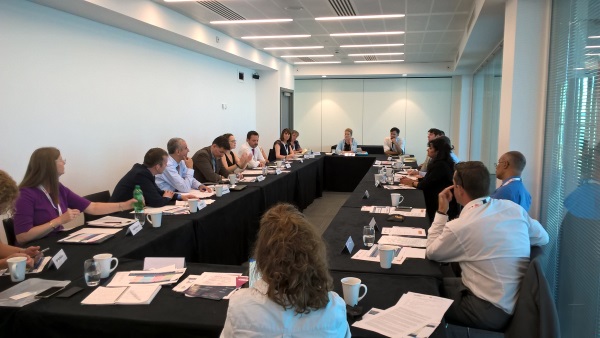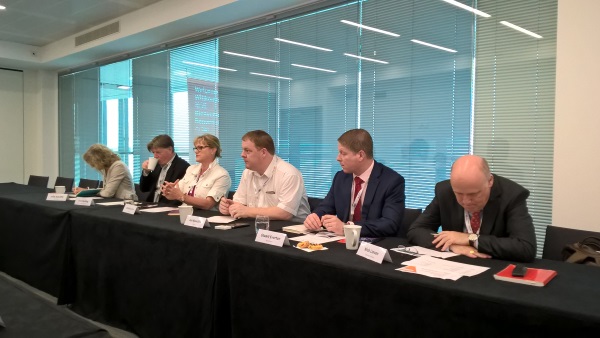Over the last three weeks, I have had the pleasure of chairing a series of roundtables with colleagues from across the country on the Industrial Strategy’s Grand Challenges at this year’s International Business Festival in Liverpool.
The aim of these sessions was to bring policy leads from across government, local enterprise partnerships (LEPs), businesses, universities and others from around the country together to consider the latest thinking on each of these economic and social challenges for the country and what, collectively, we can do about them.
The sessions took place on the Liverpool waterfront at our new state of the art Exhibition Centre as part of the International Business Festival 2018.
The Festival is one of the world’s largest biennial business events and provides businesses and decision makers with the space and opportunities to develop new partnerships, broaden their skills, get inspired, learn and observe the latest in innovation and technology, as well as understand and explore what markets will offer the best prospects for their trading future.
To enhance the roundtable discussions, each Grand Challenge event was aligned to one of the nine themed days of the Festival.

Grand Challenges define global economy’s future direction
The aptly named “Grand Challenges” of Clean Growth, Future Mobility, Ageing Society, and Artificial Intelligence and Data, really do define the key issues facing not just the UK but most of the global economy over the coming decade and beyond.
It became clear in each of our stimulating discussions just how broad and life-changing each of these challenges is and how multi-faceted the solutions will need to be – involving the adoption and application of technology alongside cultural and institutional changes.
What was equally clear was that each will need a step change in our approach and a high level of collaboration, partnering and innovation.
But with every challenge comes an opportunity. And we heard from a number of businesses who are already working on developing solutions and business opportunities in these areas.
And if we can develop solutions at a local level, then we will have the opportunity to export those solutions across the UK and globally, driving business performance and productivity.
I believe that LEPs have the potential to play a vital role in this space, developing effective local partnerships between public bodies, such as the NHS trusts, universities, businesses, schools and others to tackle these issues at a functional economic geography.

‘Full to the brim of ideas’
I certainly came away from the sessions full to the brim with ideas of how we could develop applications locally with our partners and support national government in tackling these key issues through our local Industrial Strategy.
I must pay tribute to everyone who attended these sessions – almost 100 people in total – and participated fully and openly in the discussions.
Colleagues in government gave really clear insights into the analysis of the challenge and the mission based approaches being adopted to tackle these challenges at a more manageable, thematic level.
And I was impressed with all of the LEPs present who each had interesting local perspectives on the challenges and how they were approaching these in the development of their Local Industrial Strategies.
Our aim in organising these sessions had been to really bring the Grand Challenges to life locally and provide insight, encouragement and direction to those seeking to tackle them.
We certainly achieved that aim and only wish that more people could have taken part.

Future engagements
We are also looking with government colleagues to run some follow-up sessions in about six months, to coincide with the first anniversary of the Industrial Strategy White Paper publication to build on the platform we have established.
These Grand Challenges are not just the responsibility of government. They are the responsibility of all of us and in setting out these challenges so coherently and fully, government has provided a framework and funding mechanisms with which we can engage, develop responses, solutions and socialise widely through case studies.
We will certainly be looking to do this with the Combined Authority in our local Industrial Strategy for Liverpool and I would encourage LEP colleagues around the country to do likewise.
Mark Basnett, Managing Director, Liverpool City Region LEP
